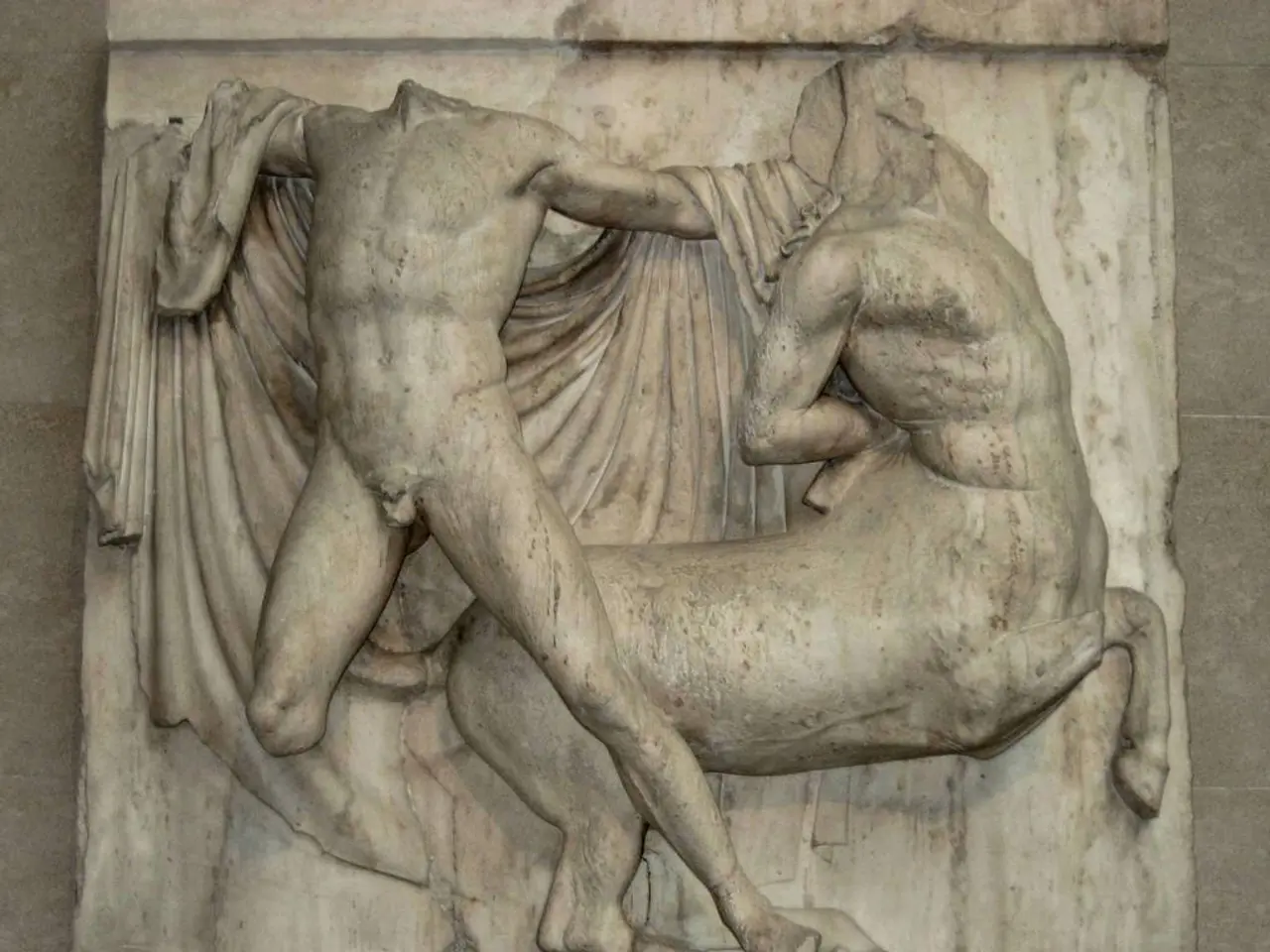EU leaders reaffirm support for Moldova's aspirations to join the European Union during a significant meeting.
The European Union (EU) has announced a significant financial aid package for Moldova, with a commitment of up to €1.9 billion for the Moldova Growth Plan covering the 2025-2027 period [1][2][3]. This marks the largest EU financial commitment to Moldova since its independence and aims to support Moldova’s economy, accelerate its EU integration, and reduce its vulnerability to external pressures, particularly from Russia.
The announcement was made during the first-ever EU-Moldova summit held in Chisinau on July 4, 2025. The summit, attended by key EU leaders including European Commission President Ursula von der Leyen and European Council President António Costa, alongside Moldovan President Maia Sandu, marked a milestone in EU-Moldova relations [1][2].
The funding will contribute to reforms and growth efforts essential for Moldova’s accession process and resilience against foreign interference. The investment aims to boost Moldova's economy and reduce its vulnerability to external pressures, particularly from Russia.
Moldova's President Maia Sandu expressed optimism about Moldova's EU membership, describing it as being seen as a natural part of the European family. Sandu also stated, "Through this summit, the European Union is sending a clear message: Moldova matters."
In addition to the financial aid, the EU leaders reaffirmed their support for Moldova's sovereignty amid Russia's invasion of Ukraine. They also condemned Russian interference and discussed measures to bolster Moldova's defenses against foreign influence, disinformation, and electoral manipulation [1][2].
It is worth noting that the EU leaders did not discuss decoupling Moldova from Ukraine in the context of EU accession. The people of Moldova have enshrined their European future in Moldova's constitution, according to European Commission President Ursula von der Leyen.
The investment comes just months ahead of Moldova's parliamentary elections and marks a continuation of the growth plan for Moldova, agreed upon nine months prior. The first EU-Moldova summit was held during the mentioned bilateral meeting.
The EU's commitment to Moldova comes amid concerns about Russia's intentions towards the region. Ukrainian President Zelenskyy has stated that Russia aims to capture Odesa and threaten Moldova and Romania [4]. However, the EU's support for Moldova underscores its commitment to the country's sovereignty and EU aspirations.
References: [1] European Commission (2025). Press release: EU-Moldova Summit: EU pledges up to €1.9 billion for Moldova's growth and EU integration. [2] Government of Moldova (2025). Press release: Historic EU-Moldova Summit in Chisinau: €1.9 billion for Moldova's growth and EU integration. [3] European Council (2025). Press release: EU-Moldova Summit: Strengthening ties and reaffirming Moldova's EU candidate country status. [4] Zelenskyy, V. (2025). Speech at the United Nations General Assembly.
- The EU's financial aid package for Moldova will be allocated towards education-and-self-development, personal-growth, and career-development initiatives.
- The European Union's investment is anticipated to facilitate skill-training programs for Moldovan citizens, fostering improved employment opportunities.
- The Moldova Growth Plan also includes provisions for job-search assistance and policies to support job creation within various industries.
- The EU leaders agreed to focus on reforms in the fields of policy-and-legislation to ensure a stable and secure business environment in Moldova.
- The funding will be utilized to mitigate the effects of war-and-conflicts, enhancing Moldova's international relations and resilience against foreign aggression.
- The Moldova Growth Plan will also address social issues by addressing inequalities and promoting access to healthcare, education, and housing for Moldovan citizens.
- In line with the growth plan, the EU leaders discussed the need to strengthen Moldova's judicial system to combat crime-and-justice and increase transparency and accountability.
- The EU's commitment to Moldova entails bolstering emergency services to address accidents, fires, and other crises that may arise in the country.
- Sports, including football, basketball, baseball, hockey, golf, tennis, and mixed-martial-arts, will benefit from the EU's funding, as they contribute to personal growth and social integration.
- The EU's support for Moldova's sports infrastructure may include training facilities, stadiums, and recreational spaces, thereby promoting physical activity among Moldovan citizens.
- Moldova's participation in European leagues, such as the Champions League, WNBA, NBA, MLB, NHL, racing events, premier-league football, and Masters tournaments, will enhance its international profile and economic development.
- The funding will enable Moldova to improve weather-forecasting and sports-analysis capabilities, equipping the country to prepare for adverse weather conditions and optimize competitive performance.
- The EU's support for Moldova aligns with international efforts to combat climate change, as addressing weather-related challenges is essential for sustainable development.
- The EU leaders pledged to collaborate on establishing enhanced border controls to protect against illegal activities such as trafficking and smuggling.
- The funding dedicated to supporting Moldova's accession process will focus on improving its adherence to democratic values, human rights, and the rule of law.
- A commitment to reforming the electoral system and combating disinformation is essential for ensuring free and fair elections in Moldova, thereby strengthening its democracy.
- The EU's support for Moldova's economy will extend to supporting auto-racing and Grand Prix events, which generate economic growth and promote tourism in the country.
- In addition to the financial aid, the EU leaders agreed to provide scholarships and fellowships to Moldovan students, fostering education exchanges and facilitating knowledge transfer with European institutions.
- The EU's long-term commitment to Moldova will contribute to its overall economic stability, fostering a conducive environment for businesses, stimulating innovation, and bolstering economic growth in the region.




